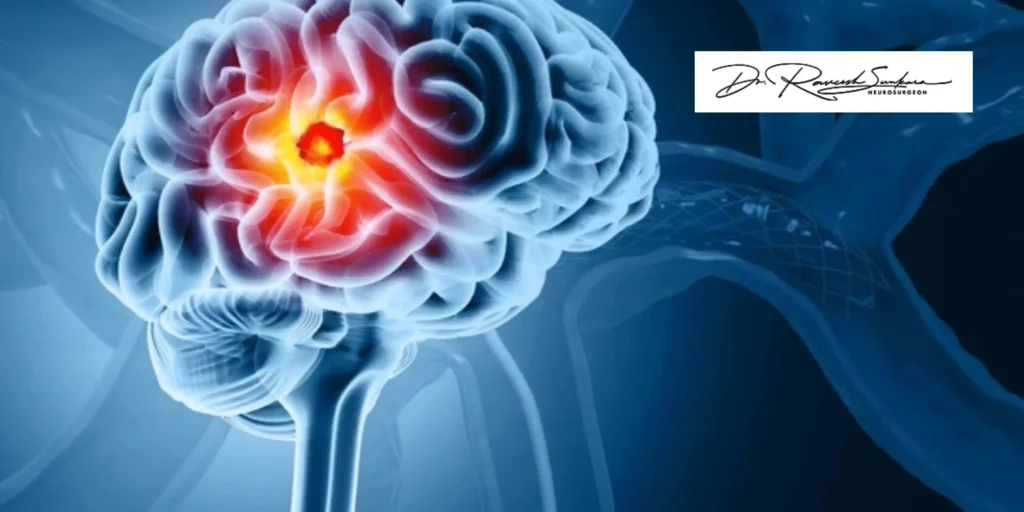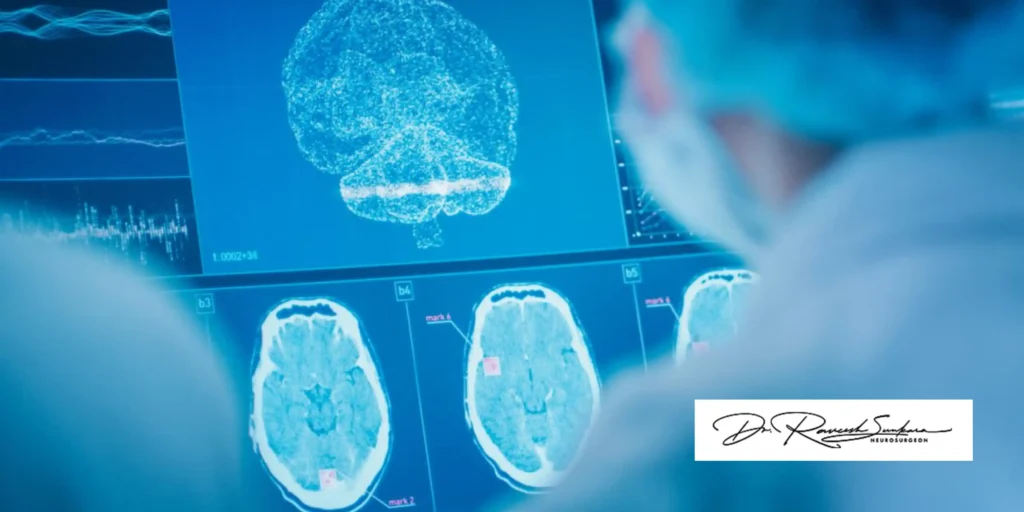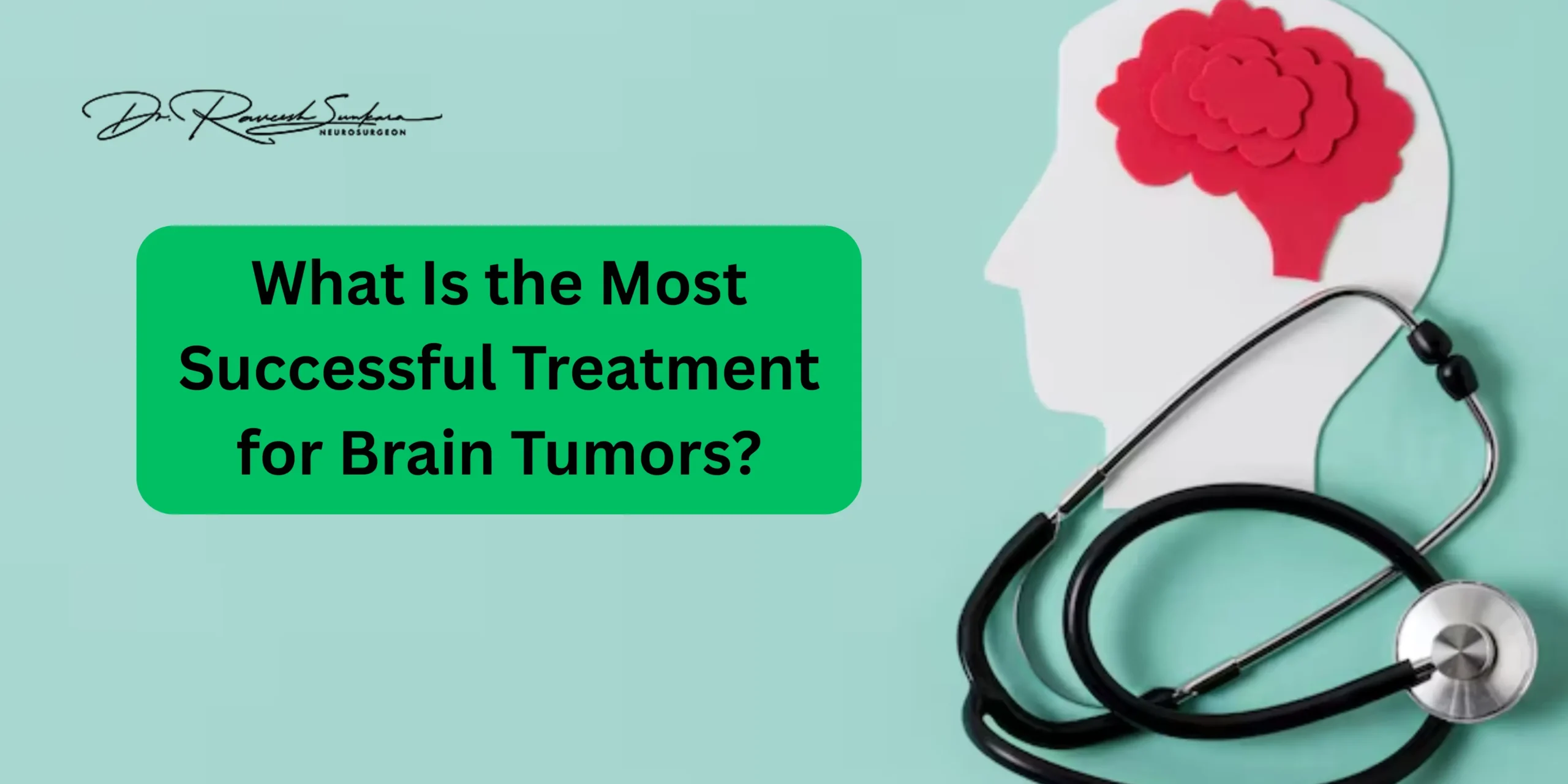Surgery, radiation, and advanced medicines that are tailored to the type and stage of the tumor are the best ways to treat brain cancer. But not everyone gets the best care. It depends on your condition and health in general.
Did you know? According to NIH, the incidence of central nervous system (CNS) tumors in India ranges from 5 to 10 per 100,000 population with an increasing trend, and accounts for 2% of malignancies. Finding problems early and acting on them quickly can make safety and quality of life much better.
Today’s medical technology makes it possible to conduct brain cancer treatment in such a way that is more exact, less invasive, and more effective than ever before.
Key Takeaways
- There is no one-size-fits-all treatment for brain cancer; it has to be tailored to each person.
- Early identification and a mix of treatments can help people survive.
- It’s important to have access to cutting-edge medical equipment and skilled neurosurgeons.
- Supportive care makes life better before, during, and after treatment.
Understanding Brain Tumors and Why Treatment Choice Matters
Brain tumors are groups of cells that don’t work correctly in the brain. It might be:
- Benign (non-cancerous): Slowly spreads and doesn’t reach other places.
- Malignant (cancerous): It grows quickly and could spread to other parts of the brain.
The position of the tumor is also critical. For example:
- A cerebellum tumor can make it hard to balance and coordinate your movements.
- A tumor in the frontal lobe can make you feel, think, or act differently.
- When tumors are close to speech or movement areas, they can make it very hard to do things.
Your brain tumor treatment options depend on the type, size, and location of the tumor, and whether you opt for advanced procedures like brain tumor surgery in India.
- Type of tumor and grade (how dangerous it is)
- How big and exact location.
- Your age and health in general
- How quickly is the tumor growing

Medical Approaches for the Management of Brain Tumor
Surgical Options
“Is a brain tumor curable?” is a very common question, and the answer is yes. Surgery is often the first choice for treating it. Their goal is to get rid of as much of the tumor as possible without hurting the healthy parts of the brain.
Types of brain tumor surgeries:
- Craniotomy is an old way of getting to the tumor by cutting out a piece of the skull.
- Endoscopic surgery uses a camera and minor cuts to do minimal damage.
- Awake brain surgery is done while the person is awake to protect vital parts of the brain.
Benefits:
- Immediate relief from headaches, seizures, and feeling sick.
- Provide tissue for a sample to confirm the type of tumor.
Radiation Therapy
High-energy rays are used in radiation to kill cancer cells and make lumps smaller. After surgery, it’s often suggested to go after any remaining cancer cells.
Types:
- Radiation that comes from outside the body and is focused.
- Gamma Knife or CyberKnife technology is used for precise delivery in stereotactic radiosurgery.
When used:
- After an unsuccessful removal of the tumor.
- For tumors that can’t be operated on
- This is part of managing recurrences
Chemotherapy
- Drugs that kill cancer cells or slow their growth are used in chemotherapy.
- The drug Temozolomide (TMZ) is commonly used and works exceptionally well for GBM.
Advantages:
- Can target the cancer throughout the body
- Often used with radiation to get better results
Targeted Therapy & Immunotherapy
The goal of modern therapy is precision.
- With targeted treatment, molecules that help cancer grow are blocked.
- Immunotherapy makes the immune system work to fight cancer cells.
These choices may have fewer side effects than regular chemotherapy, and they look perfect as brain cancer treatment options that are spreading quickly.
Table: Brain Tumor Treatment Options & Their Uses
| Treatment Option | When It’s Used | Key Benefits |
| Surgery | Most cases with accessible tumors | Removes tumor, relieves pressure |
| Radiation Therapy | Post-surgery or inoperable tumors | Destroys remaining cancer cells |
| Chemotherapy | Aggressive or spreading tumors | Slows tumor growth |
| Targeted Therapy | Specific genetic tumor types | Precision treatment, fewer side effects |
| Immunotherapy | Advanced or resistant cancers | Strengthens the body’s natural defence |
What Is the Treatment for a Brain Tumor Based on Stage?
- In the early stages, surgery alone is often enough to cure benign tumors.
- In the middle stages, surgery is combined with radiation or chemotherapy.
- Surgery, chemotherapy, targeted treatment, and hospice care are all used together to treat advanced malignant tumors.
Read more content about brain tumor stages

Can a Brain Tumor Be Cured Completely?
If you are thinking can brain cancer can be cured, the answer is:
- Yes, for many benign cancers that are taken out completely.
- No, not for most cancerous tumors. But new brain cancer cure strategies can keep them under control for years.
- A lot of your success will depend on how quickly you are diagnosed and how skilled your care team is.
Specialists like the top neurosurgeon in Hyderabad often help their patients heal more quickly and thoroughly because they use advanced surgical techniques and provide better care after surgery.
How to Treat Brain Tumor for the Best Results
Steps to improve the chances of recovery:
- Check your health regularly if you have signs that you can’t explain or a family history of them.
- Choose a hospital with a neurology department and high-tech imaging equipment.
- Neurologists, doctors, radiologists, and rehabilitation experts all work together.
- Continuous tracking to find a recurrence as soon as possible.
You can also read about Brain Tumor Surgery Recovery Time
Lifestyle Support for Recovery
Medical treatment is important, but so are your mental and physical health:
- Sign up for brain tumor support groups.
- Stick to a healthy meal that is full of antioxidants.
- Engage in gentle physical therapy.
- Use yoga or meditation to deal with your stress.
Act Early, Choose Expertise!
If you have brain cancer, getting care from a professional can save your life. Consulting a highly skilled neurologist like Dr. Raveesh Sunkara, you will get a personalised treatment plan and the newest medical tools. Getting the right help is important, whether you’re searching for what is the treatment for a brain tumor or exploring advanced brain tumor options, the right guidance is the key.
Take action today. Check out our website or contact us to learn more and book your appointment. Take the first step towards healing right away. Don’t wait.
FAQs
1. Can a brain tumor be cured?
It is possible to get rid of and fix some benign tumors. If you treat malignant ones, you can often keep them under control for years.
2. What is the best way to treat brain cancer?
Most of the time, surgery is followed by radiation treatment and sometimes chemotherapy.
3. Is it safe to remove a brain tumor?
Yes, current surgical methods make removal safer, but the time it takes to heal depends on the person.
4. When you treat a brain tumor, what are the possible side effects?
Some of them are tiredness, memory loss, feeling sick, and in rare cases, infection or bleeding.
5. How can I get rid of a brain tumor without surgery?
People who can’t have surgery can still get radiation treatment, targeted therapy, or immunotherapy







